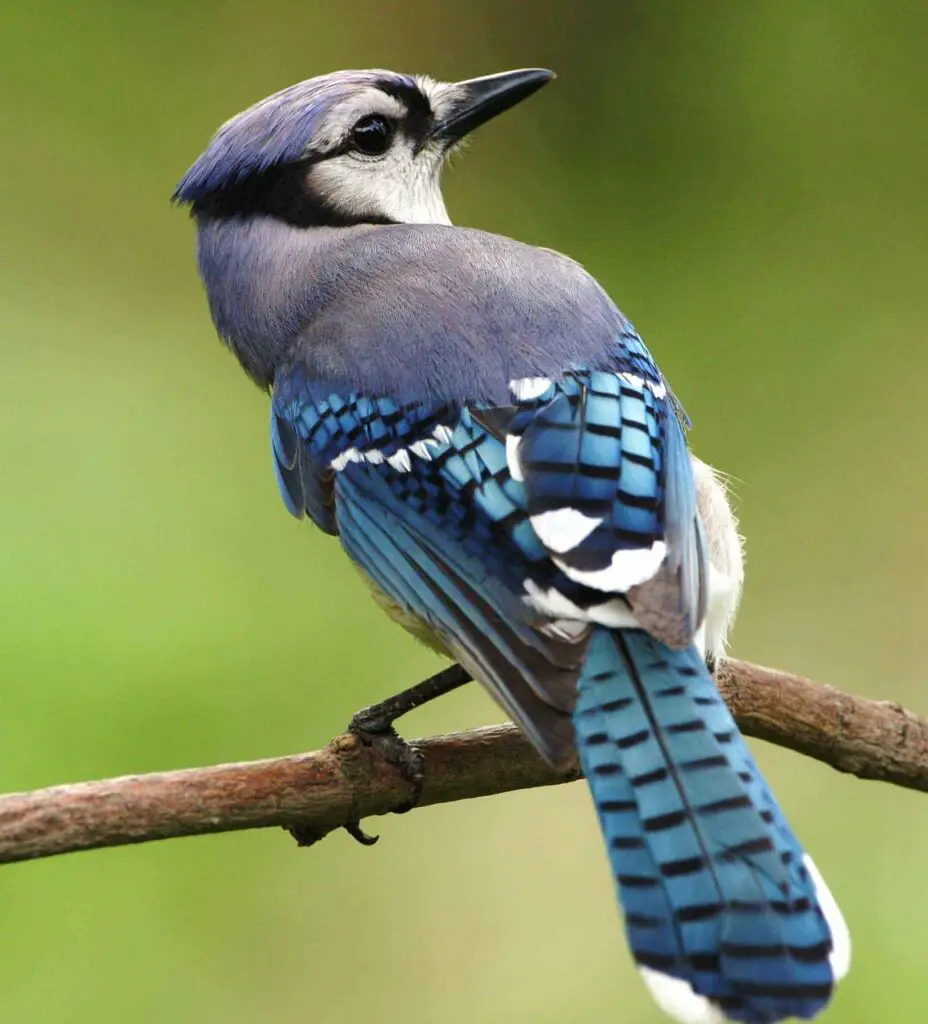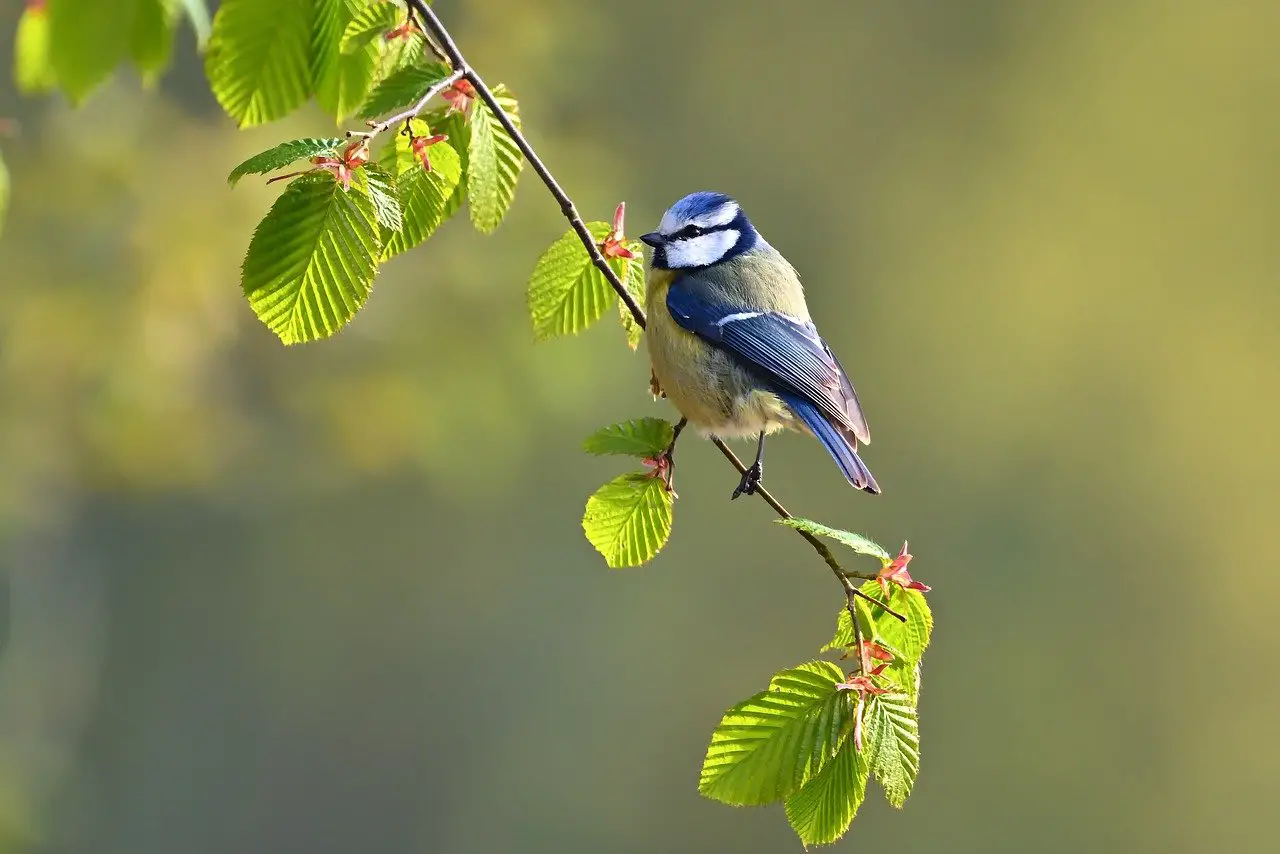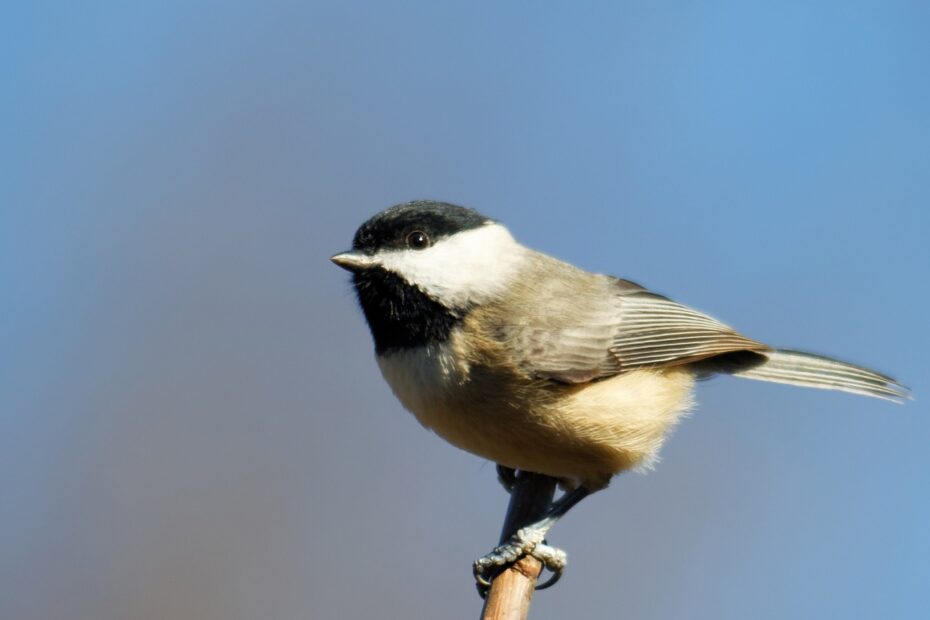When we think of bird diets, we often envision seeds, insects, or nectar. However, the culinary preferences of our avian friends extend beyond these common food sources. In this article, we delve into the intriguing world of birds that eat spiders. Discover the surprising connections between birds and spiders and how these encounters shape ecosystems.
You may also want to know what a gold finch eats.
Birds That Eat Spiders:
Blue Jay
The vibrant Blue Jay, known for its striking blue plumage and assertive nature, is among the bird species that include spiders in their diet. While their primary diet consists of seeds, nuts, and insects, Blue Jays opportunistically hunt and consume spiders. These resourceful birds can be observed snatching spiders from their intricate webs or actively searching for them in foliage.

Black-capped Chickadee
The Black-capped Chickadee, a small songbird with its signature black cap and cheerful song, is another species that occasionally indulges in spider consumption. These charismatic birds often forage among trees and shrubs, inspecting leaves, crevices, and bark for hidden insects and spiders.
Eastern Phoebe
The Eastern Phoebe, a flycatcher known for its distinctive “phoebe” song, demonstrates a fondness for spiders. These birds are adept at aerial hunting, capturing insects and spiders mid-flight. With swift and agile maneuvers, they snatch unsuspecting spiders from their intricate silk threads.
Spider Consumption Behavior
Hunting and Foraging Techniques
Birds that eat spiders employ a range of hunting and foraging techniques to secure their arachnid prey. Some birds actively search for spiders among foliage and vegetation, while others target spiders caught in their intricate webs. Aerial hunters use their agility and quick reflexes to capture spiders mid-flight.
Types of Spiders Consumed
Birds consume a variety of spiders, including orb-weavers, cobweb spiders, and jumping spiders. These arachnids vary in size, shape, and behavior, providing a diverse and nutritious food source for our feathered friends.
Benefits of Spider Consumption
Nutritional Value
Spiders offer a valuable source of nutrients for birds. Rich in protein, spiders provide essential amino acids necessary for growth, development, and feather maintenance. Their small size and high energy content make them a convenient and efficient food source for birds.

Pest Control
Beyond their nutritional value, spiders play a role in pest control. By consuming spiders, birds help regulate populations of insects that may be harmful to crops or other beneficial organisms. This natural form of pest control can contribute to maintaining ecological balance.
Relationship Between Birds and Spiders
Coexistence in Ecosystems
Birds and spiders share complex relationships within ecosystems. While some birds prey on spiders, others indirectly benefit from their presence. For example, spiders contribute to controlling insect populations, providing a crucial food source for insect-eating birds.
Influence on Spider Populations
The predation pressure exerted by birds can shape spider populations, influencing their abundance, distribution, and behavior. The presence of bird predators can impact the web-building behavior and site selection of spiders, leading to evolutionary adaptations.
Conclusion
The fact that birds include spiders in their diet adds another layer of intrigue to the interconnectedness of the natural world. These avian predators showcase their adaptability and resourcefulness by exploiting the nutritional benefits and ecological role of spiders. By appreciating these unexpected dietary preferences, we gain a deeper understanding of the diverse and intricate relationships that shape ecosystems.
FAQs
Q: Are there any risks associated with birds consuming spiders? A: Generally, consuming spiders poses no significant risks to birds. However, some spiders may possess venom that can be harmful to birds if consumed in large quantities. Birds have evolved mechanisms to handle venomous prey, and instances of poisoning are rare.
Q: Do all bird species eat spiders? A: Not all bird species consume spiders. The inclination to eat spiders varies among bird species based on factors such as their dietary preferences, foraging techniques, and habitat.
Q: How do birds locate and catch spiders? A: Birds locate spiders through visual cues, such as observing their movements or detecting spider webs. Once a bird spots a spider, it may employ various strategies depending on its hunting style, including aerial attacks, searching among foliage, or snatching spiders from their webs.
Q: Can spider consumption be harmful to birds? A: In general, spider consumption is not harmful to birds. Birds have evolved to handle a wide range of prey, including spiders, and their digestive systems can process the chitinous exoskeleton and venom of spiders without significant issues.
Q: What other insects do birds commonly consume? A: Birds commonly consume a variety of insects, including beetles, caterpillars, flies, grasshoppers, and ants. These insects provide essential nutrients and serve as an abundant food source for many bird species.
